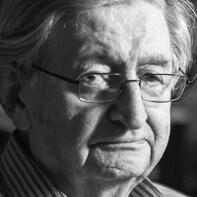By: Yaakov Malkin

Everyone is a believer. The nickname “nonbeliever” is a name the religiously observant have given to those of other faiths. Jews and Christians were known as “nonbelievers” in Greece’s Hellenistic period because they believed in a single god and not in several.
Humanist secular people free of the commandments of religion believe in a variety of other faiths such as: faith in nature as an independent force without a creator or an overlord; faith in man as the overlord of his own life – his freedom to choose lifestyle, culture and commitment to justice and human rights – in order to improve communal life and allow greater personal freedom, equality and the pursuit of happiness; faith in education for humaneness, a conglomeration of characteristics marked by that which is human in people – like empathy, a sense of justice and wisdom. Education for humaneness occurs in national culture but becomes and becomes a process of dehumanization in the various nationalist or chauvinist cultures like male, racist or religious. These secular people may also have faith in gods formed as literary heroes who received divine attributes in the literature of a specific religion; faith in divinity as a temporary characteristic that fades from the consciousness of those that believe in it when one religious regime is replaced by another religious regime or when religious culture is replaced by an a-religious culture.
Secular Jews are free of religion, but come from a Jewish family background or join the Jewish family or public and live its culture. Secular Zionist Jews believe: in the obligation to fulfill the rights of every person and people; in humanist Zionism which is the social expression of that faith – – by fulfilling the rights of Jews to live in a Jewish and democratic state – in the spirit of Israel’s Declaration of Independence; in Jewish renewal – as a multicultural secular and religious culture. Secular Jews develop new national and personal holiday rituals in keeping with their faiths; in the Bible as the fundamental literature for all the Jewish cultures – both secular and religious – reinventing it as the basis for all Jewish education; in freedom of choice of a lifestyle and manner of fulfilling Judaism – expressed in tens of thousands of secular Jewish cultural works in Israel since the beginning of the 20th century and the renewal of the Hebrew language.
The faiths of secular humanist Jews are evident in Israel’s secular Jewish culture – in literature, philosophy, the arts, in new Jewish cultural communities, in the public sphere and in higher education and schooling.
The faith in the obligation to fulfill the rights of every person and every people is expressed by humanist Zionism which fulfills the rights of the Jews as the rights of all people, to live in a Jewish and democratic state that fulfills the principles of the Declaration of Independence which forms the basis of the State of Israel.
Jewish faith – as culture. Judaism as culture includes the multitude of secular and religious cultures of the Jewish people. The range of Jewish cultures is evident in the variety of holiday and national rituals as well as personal rituals such as weddings and bar mitzvahs. These rituals, taking place in the humanist secular public, are based on the non-religious values and faiths of their participants and include new varieties of creative works that represent Judaism throughout the ages.
Secular Judaism within the Zionist revolution renewed the understanding of the Bible as the fundamental literature of Jewish culture. Focusing study on the Bible instead of the Oral Law changed Jewish education. Reviving the Hebrew language and implementing it as the language of speech and communication separated Israeli Judaism from Judaism of the Diaspora.
The faiths of secular Jews are the rational faiths in reality and in an ideal. All people – religious and secular – express their faith in their lifestyle. Most Jews in the world lead a lifestyle free of the commandments and rituals of religion and therefore express their faith in the person as the overlord of his own life – free to choose his path in life and in Judaism, obligated by the rules of justice and human rights and the laws on which democracy is based.
What is faith? What do we mean when we say “What do we believe in”? “Faith“ is attributable to the description of reality (“faith in reality“) or attributable to a commitment to rules of conduct – rules of justice or religious commandments (“faith in an ideal”) .
A distinction must be made between two types of faith in reality. Rational faith (belief) in reality is the name for attributing truthfulness to a description or process that has been proven scientifically through experiments and research. Religious faith in reality is the name for attributing truthfulness to a description or process because it is written in a holy book of a certain religion.
A distinction must be made between two types of faith in ideal. Rational faith (belief) in an ideal is the name for attributing a person’s commitment to act according to universal rules of justice. Rules of justice, which fulfill human rights, in order to improve the life of the individual and the community, to lessen suffering and increase pleasure in life. Religious faith (belief) in an ideal is the name commitment to behavior dictated by the commandments of certain religious leaders who aspire to speak in the name of the god of that religion.
Yaakov Malkin is a professor of fine arts and a founder of the Department for Cinema and Television at the Tel Aviv University. He is also an author and a playwright.








